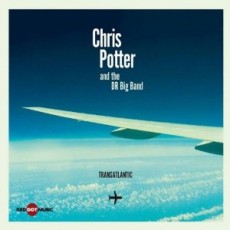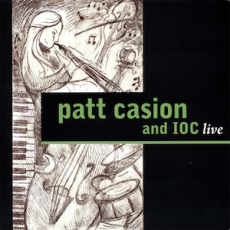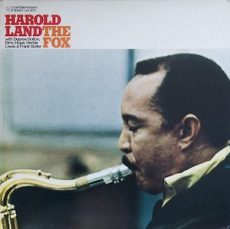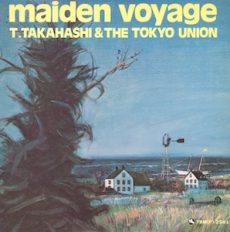
Daily Dose Of Jazz…
Chris Potter: A Jazz Journey from Chicago to the World Stage
Born on New Year’s Day 1971 in Chicago, Illinois, Chris Potter discovered his musical calling early in life. Though he spent his formative years in Columbia, South Carolina, his extraordinary talent knew no boundaries. A natural prodigy, young Chris explored multiple instruments—mastering both guitar and piano—before finding his true voice in the saxophone.
By age 13, Potter was already holding his own on professional jazz stages, captivating local audiences with his precocious gifts. His passion for the music led him to New York City, where he honed his craft at two prestigious institutions: the New School and the Manhattan School of Music.
A Distinguished Career
As a bandleader, Potter has released more than a dozen critically acclaimed albums, earning recognition from the most discerning voices in jazz. His work has landed in the top ten lists of Jazziz and Slate magazines, as well as The New York Times—a testament to his artistic vision and technical brilliance.
Equally impressive is his work as a collaborator. Potter has shared stages and recording studios with an extraordinary roster of jazz legends, including Patricia Barber, Kenny Werner, Marian McPartland, Red Rodney, Paul Motian, Adam Rogers, the Mingus Big Band, Ray Brown, Dave Holland, James Moody, and Joanne Brackeen—just to name a few.
Today, Chris Potter continues to enchant audiences worldwide as a saxophonist (both alto and tenor), multi-instrumentalist, and composer, constantly touring, performing, and recording new music that pushes the boundaries of contemporary jazz.
More Posts: bandleader,history,instrumental,jazz,music,saxophone

Daily Dose Of Jazz…
Patt Casion was born Patt Spears on December 31, 1963 in the Monterey Peninsula, California and grew up in Marina where she learned to play music while at church. It was there she started building her musical chops that led to her attending Berklee College of Music in Boston, Massachusetts, where one of her classmates was Lalah Hathaway, daughter of Donny Hathaway.
Opportunity gave way to her playing local gigs and recording two albums and took her to many places around the world, one was as a member of the Church of God Christ International Orchestra based in Memphis, Tennessee.
Soprano saxophonist Patt Casion, who after a two year battle with cancer, died on December 31, 2017 at Community Hospital of the Monterey Peninsula at the age of 55.
More Posts: bandleader,history,instrumental,jazz,music,saxophone

Requisites
The Fox ~ Harold Land | By Eddie Carter
>This morning’s selection from the library features one of my favorite tenor saxophonists, Harold Land, who, alongside his band members, is in pursuit of a cunning opponent: The Fox (HiFi Jazz J 612/SJ 612), which initially hit the stores in 1959. Harold was a leading West Coast tenor saxophonist who played with some of the best jazz groups, including those led by Clifford Brown and Max Roach. After leaving the Clifford Brown-Max Roach Quintet to prioritize his family life in California, he may have sacrificed the chance for even greater recognition. Still, his impressive discography continues to illuminate a career that lasted almost fifty years. Land receives exemplary support on this date from Dupree Bolton on trumpet, Elmo Hope on piano, Herbie Lewis on bass, and Frank Butler on drums. My copy is the 1975 U.S. Stereo reissue (Contemporary Records S7619).
Side One kicks off with the title track, The Fox, a high-energy opener by Harold Land that is fueled by the quintet’s theme. The tune takes its name from a nickname given to Harold by drummer Lawrence Marable. Land leads the way, delivering a solo bursting with fiery passion. Bolton steps in next and cooks hard. Hope surges ahead with an energetic touch in the following reading. Butler then engages in a lively and playful exchange with the front line, until the theme’s reprise brings the tune to an abrupt and thrilling end. Mirror-Mind Rose, the first of Elmo Hope’s four contributions, serves as a lyrical showcase for Land, whose opening solo after the ensemble’s touching theme paints an affectionate, mellow soundscape. Bolton’s turn is a dreamy, gorgeous presentation, and Hope wraps up the solos with elegance before the group gently ends the tune together.
Hope’s One Second, Please is a rocking groove with dynamic interaction between both horns and the trio on the melody. Harold lets his horn do the talking in the opening statement. Dupree responds by getting so many ideas into the second solo. Elmo glides efficiently over the rhythm section’s backdrop next. Frank collaborates with the front line in the closing segment preceding a satisfying finale. Sims-A-Plenty, Hope’s third original starts Side Two with the unfolding of a cheerful, mid-tempo theme by the quintet. The pianist steps up first, building the opening solo into a firm, solid groove. Land matches the momentum with a swinging statement next. Bolton impresses with inventive, nuanced lines in a remarkable interpretation. Butler moves toward the reprise with exciting agility on the closer preceding the ensemble’s cohesive finale.
The playful spirit of Little Chris radiates the joy and happiness Harold Land felt for his then nine-year-old son, and that feeling shines through in the quintet’s opening notes of the melody. Harold takes the lead with a captivating statement that draws thelistener in. Bolton brings a bright, assertive tone and confident energy to the second reading. Hope makes his entrance next and swings soulfully, then Butler adds a few lively thoughts before the quintet reassembles for the closing theme. One Down by Hope begins with Butler’s breezy, island-inspired introduction, ahead of the group’s medium-fast melody. Bolton opens the solos with seasoned flair, then Elmo responds with polished virtuosity. Harold takes up the next spot vigorously, and Frank adds the exclamation point in a brief but effective solo before the quintet returns to take the song out.
Bassist Herbie Lewis is the only member of the quintet who doesn’t take a solo on any track, but his presence is truly felt throughout. His controlled strength and engaging ensemble playing create a reliable, steady foundation that beautifully supports Land, Bolton, Hope and Butler at the forefront. This album was produced by David Axelrod and recorded by Art Becker and David Wiechman at Contemporary Records. The reissue’s sound quality is first-rate and offers its owner a marvelous stereo listening experience. For fans of West Coast Jazz, the incredible interaction among the musicians is captivating, and these performances are definitely worth exploring. The Fox by Harold Land may seem like an elusive adversary during your record-shopping hunt, but once you acquire it, it won’t bite or attack; instead, it could become a treasured addition to your jazz library!
~ Little Chris – Source: Album liner notes by Leonard Feather ~ Lawrence Marable was also known as Larance Marable – Source: Wikipedia.org. © 2025 by Edward Thomas Carter
More Posts: choice,classic,collectible,collector,history,instrumental,jazz,music,saxophone

Daily Dose Of Jazz…
Morris “Moe” Koffman was born on December 28, 1928 in Toronto, Canada. At the age of nine he began his musical studies in his native city, studying violin. He attended the Toronto Conservatory of Music, where he was a student of Samuel Dolin.
Dropping out of school when he found work performing in dance bands, in 1950, he moved to the United States, where he played with big bands including those of Sonny Dunham and Jimmy Dorsey. In 1955, he returned to Toronto where he formed a quartet and later a quintet and recorded Swinging Shepherd Blues in 1957 which helped establish his reputation as a flautist.
Koffman was inspired by Rahsaan Roland Kirk to play multiple instruments at once. He had a modified set of straps to hold a tenor and alto saxophones so that he could put forward incredible chords and improvise at the same time. He performed with Dizzy Gillespie and Peter Appleyard during the 1980s, as well as continuing to front the Moe Koffman Quintet. He often performed with Rob McConnell’s Boss Brass.
He was appointed to the Order of Canada in 1993 and inducted into the Canadian Music Hall of Fame in 1997.
Saxophonist, flautist, composer and arranger Moe Koffman, who was diagnosed with non-Hodgkin’s lymphoma in 2000, died of cancer in Orangeville, Ontario, Canada on March 28, 2001 at the age of 72.
More Posts: arranger,composer,flute,history,instrumental,jazz,music,saxophone

Daily Dose Of Jazz…
Tatsuya Takahashi was born December 24, 1931 in Tsuruoka, Yamagata, Japan. He played on U.S. military bases in the early 1950s, and later in the decade moved to Tokyo, Japan.
He worked with Keiichiro Ebihara from 1961, but by 1966 was leading his own ensemble, Tokyo Union, which remained active until 1989. In the 1970s he played at the Monterey and Montreux Jazz Festivals.
After leaving Tokyo Union, Takahashi worked in jazz education, and in 1996 founded a new ensemble, Jazz Groovys.
Saxophonist Tatsuya Takahashi died on February 29, 2008 in Tokyo, Japan.
More Posts: bandleader,educator,history,instrumental,jazz,music,saxophone



